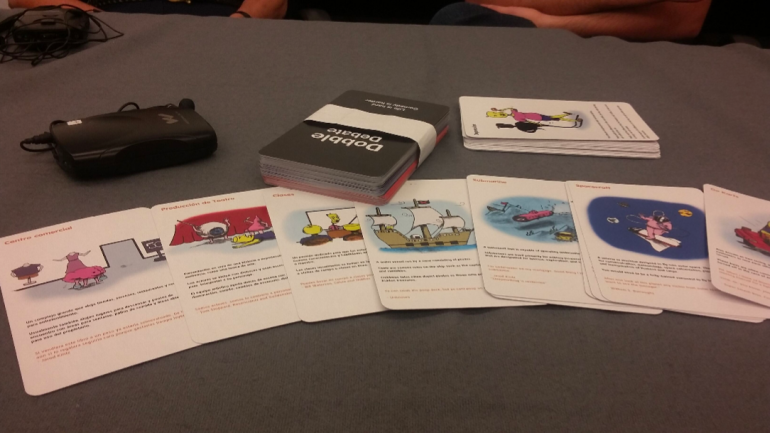
UPSIDE DOWNSIDE is a collaborative card game and research-creation project created by Nina Czegledy, Lynn Hughes and Gina Haraszti.
The project involves OCAD University’s Faculty of Design students as well as other researchers at both OCAD and Concordia, in a stimulating, games-based project that was workshopped at Transitio MX2015, a festival of new media and video to take place in Mexico City in September, 2015.
The goals of the project are to use humor and imagination to look at people’s differing abilities, acquired or genetic differences —as potentially conferring an advantage in certain circumstances. The game is played with cards and debate. It is intended to be amusing leading to laughter as players try to make up winning arguments for why a particular condition would be disadvantageous or advantageous in any given circumstances. The goal is that players learn about differing abilities. The overall experience of the game is lighthearted and imaginative, players are left associating disabilities with a positive feeling.
The initial game developed for this project is intended for use in schools with students who do not have direct experience of a differing abilities. Following this, the game will be used by people or groups with differing abilities for feedback that would contribute to a new revised game for future outreach. The game promotes, through its iterative and narrative methodology, understanding, cross-fertilization, knowledge mobility and community. The first stage of the project was the presentation and workshopping of the research-creation at Transitio MX2015 in Mexico.
Participants involved in the creation of the game:
Lynn Hughes, Gina Haraszti, Iqrar Rizvi, Nina Czegledy, Lynne Heller, Judith Doyle, Robin Len, Anna Lew, Martin Shook, Fabiola Hernandez Cancino.
